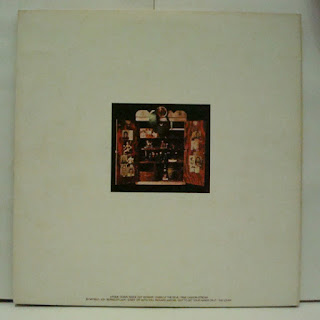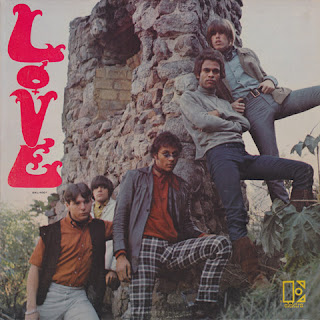1968 includes virtually every note Marvin Gardens recorded, and provides a tantalizing glimpse at a uniquely wonderful group. With a powerful female lead singer, Carol Duke, on par with Janis Joplin and Grace Slick, and a versatile and mesmerizing band that goes from playful folk to Latin-tinged jazz vamps to searing, guitar-fuelled garage rave-ups, Marvin Gardens could have been a major artist if the stars had been aligned.
The sound of Marvin Gardens takes in many aspects, different strands and strains from multiple genres. There’s early American music hall, hallelujah gospel, one or two slivers of beat group action and of course the upsurge of blues and folk-rock based sounds that were par for the course for most US groups that would appear across the latter half of the 1960s. Some influences from what was then a highly-stylised cornucopia of sounds placed under the psychedelic umbrella can also be firmly detected here and there. However, in their quest to be counted, and to be heard, Marvin Gardens certainly aimed to put their own original spin on things. Imagine a more psychedelicised We Five jamming out with the Charlatans, Big Brother and the Fish and this will at least give some indication as to where the group were at in the sound department. In common with her more famous peer Janis Joplin, lead vocalist/guitarist Carol Duke also originally hailed from Texas (in Duke’s case Lubbock, the town famous for spawning Buddy Holly). Duke’s versatile vocal style exuded a similar swaggering sass, confidence and conviction that compares favourably with SFs other hollering heroine, the Great Society’s and Jefferson Airplane’s firebrand femme Grace Slick. Duke brought with her to the Marvin Gardens rehearsal pad lots of different and unusual song material, some of which had been in her family for many years, so out went the fledgling group’s “top forty” approximations and in came the likes of Hoagy Carmichael, Leadbelly, Odetta and others. And alongside guitarist Fred Waxler, organist Tim Hazen, bassist Michael Lindner and drummer Dave Ray Costuros the group would spend many hours rehearsing up these new songs, fashioning and honing them further in clubs such as the Purple Onion, the Lion’s Share and the Matrix, creating what can now be honestly regarded as a real lasting artefact; one that, after careful evaluation, must surely also be remembered as being among the finest late 60s sounds the city had to offer.
1968 kicks off with “Walkin’ Down The Line” said to be a Bob Dylan original... and we hear first a tremendously sturdy demo version, a terrifically urgent affair that builds and builds with an infectiously driving rhythm, groovily piercing organ fills and one of these solid, uncomplicated lyrics from the school of blues.
“Had the Charlatans been joined by Country Joe’s keyboard player and fronted by an earthy female singer, they might’ve sounded like Marvin Gardens…” —Mike Stax, Ugly Things Magazine
experience on LP or CD from the Guerssen





































